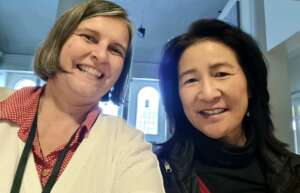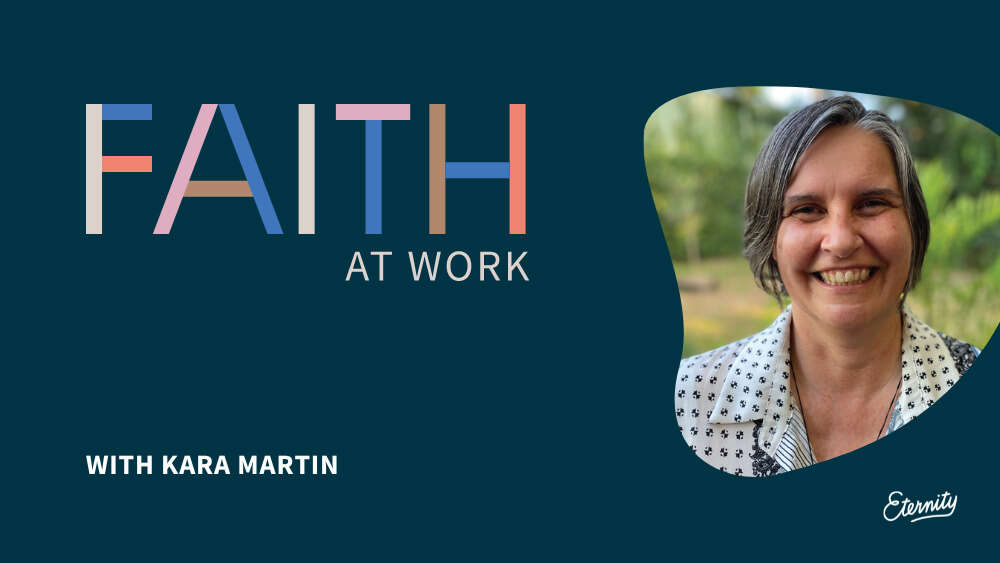How would you respond if you survived an horrific air crash? How would it impact your priorities? How would it impact your faith?
One person who has lived that reality is Helen Young Hayes. At the time of the air crash, Helen was a global investment superstar, running funds worth over $US50 billion! She was flying from Denver to Chicago when her plane was forced to make an emergency landing. As the plane slid to a stop the flight attendant said to the passengers, “This plane is on fire, run!” Helen ran. She survived. More than 100 passengers and crew didn’t make it.
Helen comments that the night before that flight she had prayed, “Lord whatever you want me to do, I want to do it. I just want to do something for the kingdom.” After the crash, she was even more eager to do God’s bidding.
She continued to work in finance for a while and then she walked away. To work for the church? To start a not-for-profit? No, to focus on caring for her children. (This is a Faith at Work column, and caring for children is some of the hardest work I have ever done.)
For Helen, it was a very rich time. She describes it as a Sabbath time. During that time, she was studying the biblical book of Esther, and the classic verse stood out, “For such a time as this …” To Helen, it was an invitation from God for the next step in her work journey.
She founded ActivateWork, aimed at helping employers find and keep loyal and engaged employees, while connecting untapped talent with long-term career opportunities. They do this by recruiting, training and giving ongoing mentoring to vulnerable individuals, enabling them (and their families) to escape the poverty cycle and flourish economically, emotionally and spiritually.
You can read more about that program in this wonderful short film by Faith & Co, Second Chances.
What work has God prepared for me to do, for such a time as this?
After several years of flourishing, ActivateWork’s program was significantly impacted by the COVID pandemic. Instead of giving up, Helen used that time to strategise about post-COVID realities for under-represented communities. She knew that the pandemic would hit the vulnerable the hardest and that they would bounce back slower. So, she formed a coalition of CEOs of the city’s major employers to commit to prioritising the vulnerable in their employment strategies when the economy recovered.
That has sparked the Colorado Inclusive Economy Movement, which has the goal of seeing over 10,000 people of diverse talents and backgrounds in jobs that pay more than $US45,000 over five years.
I caught up with this amazing woman in Denver, Colorado recently and asked her some questions about her work:
How do you see Jesus in the work you do?
I see Jesus firstly in his calling of me, whereby he placed in me the challenge and invitation of Mordecai’s words “Who knows, perhaps you have come to your royal position for such a time as this.”
My work to help individuals achieve economic flourishing is the culmination and synthesis of all that I have been blessed with; to participate in his work of shalom and restoration to those who experience struggle.
I also see Jesus in the work itself – how hard it has been, how much I have had to rely on him to open doors, grant wisdom, bless and prosper the work itself. I have been out of my own league, beyond my own capacity and walking by faith in the work.
What spiritual practices sustain you?
I find the older I am the more dependent on the Lord I become. Every morning I study and meditate on the Word, pray and journal. I rely on the Spirit for wisdom, discernment and understanding. I am fed by the teaching of my pastors and the fellowship of my small group.
What are you most excited about in the work you are doing now?
I love helping people move toward their fullest potential and to wholeness and economic thriving. Each person’s story is unique, and I like catalysing transformation.
What would you like to see the church do to support workers like you?
I’d like to see the church engage in moving beyond direct aid (food, clothing, shelter – important ministry, but it doesn’t break the cycle of poverty and economic struggle). I think the church could understand the forces that keep people in economic bondage and assist them to achieve economic freedom by looking at people holistically, rather than attending only to spiritual needs and not physical needs (Jesus told the disciples to feed the 4000 after they heard the Word).
Specifically, the church could:
1. Understand the forces that cause economic bondage and struggle (such as the decline in low-skill jobs, the increase in skilled jobs, the obsolescence of professions due to automation, how to upskill oneself to prepare for the knowledge economy).
2. Be a platform for helping individuals connect with the resources and skills necessary for economic thriving (partner with workforce development organisations and organisations that equip people for good work).
3. Teach biblical principles that address economic dysfunction such as overspending, lack of planning and stewardship, and a lack of understanding of God’s purpose for work.
Helen’s story raises a useful question to be asking ourselves: “What work has God prepared for me to do, for such a time as this?”

Kara and Helen
NEXT TIME: What do we need to do to thrive as a Christian at work?
Kara Martin is an Adjunct Professor at Mary Andrews College and Gordon-Conwell Theological Seminary, author of the Workship books and co-host of the Worship on the Way to Work podcast.
Email This Story
Why not send this to a friend?


